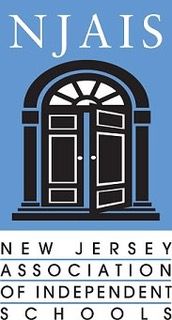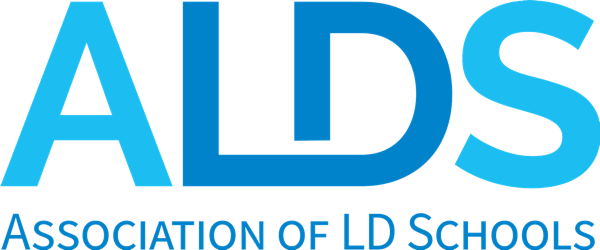Postsecondary Planning in the Age of COVID
In the middle school years, parents and oftentimes students alike, begin to turn their attention to life beyond the hallowed halls of The Craig School by exploring college and career possibilities for their student. Parents new to our school may not be aware of our end-to-end College Counseling and Career Placement services. While the lion’s share of activities generated out of our college and career office relate to high school, Lindsey Skerker, Director of College Counseling and Placement, is here for all Craig School parents, whether your child is in 7th grade or in 11th grade.
Through supportive and differentiated guidance specific to each student, their educational journey, and their dreams of the future, Lindsey works with students and families to navigate the complexities of understanding one’s learning proclivities and uncovering “best fit,” all the while empowering students for success in the college and career application process. This personalized approach accommodates students’ needs and strengths, tunes in to building self-advocacy and self-awareness skills, and encourages our students to find schools catered to their unique interests.
I encourage parents, especially our middle and high school parents, to join Lindsey for a webinar on October 27th at 7 pm, Postsecondary Planning in the Age of COVID. Lindsey will walk us through some of the sweeping changes to the college admissions & post-high school landscape that have occurred since 2020.
The path to college and post-secondary career is both a celebration and an extension of the students’ learning experience as a Craig School Badger. For a sneak peek into the scope of the webinar, please enjoy this blog post from The Craig School’s Director of College Counseling and Placement, Lindsey Skerker. I look forward to “seeing” you next Wednesday night!
Best,
Dr. Kara A. Loftin
Head of School
Postsecondary Planning in the Age of COVID
By Lindsey Skerker, Director of College Counseling and Placement at The Craig School
Within the past 18 months since the onset of the COVID-19 pandemic, K-12 and higher education has been forced to rapidly adapt. It has been hard enough for educators, let alone students and families, to keep up with these countless changes and challenges. COVID has been incredibly difficult for the education sector, with lasting ripple effects which will impact this generation of learners for years to come. However, I believe it has also brought about certain equitable adaptations that would have never occurred so quickly in the “before COVID era.” Especially as a counselor for students with learning disabilities (LDs), I have been able to witness some silver linings in the postsecondary planning process, many of which will have an immense impact on the graduating Classes of the 2020s and beyond.
Before COVID entered our vernacular in 2020, many of our LD students were not just struggling with their usual ADHD, dyslexia, dyscalculia, dysgraphia, executive functioning challenges, etc. but much of that was compounded by mental health issues such as anxiety and depression. According to the National Alliance on Mental Illness (NAMI), 20% of American adults and 17% of American youth (ages 6-17) experience a mental health issue in their lifetime. These mental health stats along with the “The Varsity Blues College Admissions Scandal” (one of the biggest news stories of 2019), and the combination of a once-in-a-century pandemic was a huge wake-up call to the higher education sector. The need for a more holistic and less mental-health-shattering college admissions process was more apparent than ever before.
When counseling students from the Class of 2020 and onwards, I have called them the pioneers in this “Wild West” new world of COVID and beyond. As colleges & universities became “test-optional” or “test-blind” in the blink of an eye in 2020, that in and of itself was a huge marker for equitable change and forward thinking in the college admissions process.
These “test-optional” or “test-blind” schools (which do not require SAT or ACT scores in the admissions process), seem like they will be here to stay for a large portion of colleges and universities. Some colleges have pledged to keep these policies through at least the Class of 2023, and others like the University of California system have done away with them altogether (note: please refer to FairTest.org for further “test-optional” colleges). Even before 2020, it is also important to realize that certain colleges have been part of the “test-optional” movement for decades! Now though, more schools are finally catching up and putting greater emphasis on other pieces of the college application, like the personal statement essay, GPA, and letters of recommendation. This increase towards a more holistic approach to the application review process has kept students’ mental health at the forefront. Finally, college admissions as an entity understands the stressors and anxieties that applicants face, for much of our society has had to grapple with staying healthy both physically and mentally. This greater overall understanding of student well-being and the major admissions adaptations have been a huge silver lining in the postsecondary process.
I like to think that another silver lining is the increased amount of autonomy and options that now exist in education and the postsecondary process. Students have experienced in-person, hybrid, and remote models of learning over the past year and a half. They have come to recognize what works best for them as a student. These experiences can hopefully act as a reflective tool to determine a potential college or career path, as students and families have come to an acute understanding of what the best learning environment is – whether that’s online, in-person, or hybrid. This individualized approach coupled with more autonomous educational opportunities will hopefully benefit students now and in the future.
Finally, I’ve appreciated the greater emphasis on really examining the “why” behind a postsecondary decision, especially during this era. Instead of just going to college because that is what a student thinks they are “supposed” to do, there has been much more of a step back to ask the “why” behind it. Students and families have been forced to consider if they’ve wanted to attend (and pay for) college classes online last year or in-person now with COVID lurking around campus corridors. Since Spring of 2020, many high school seniors across the US fully re-evaluated their decisions, and some chose to take a gap year or stay close to home to gain work or volunteer experience. I think that this era has really made our society question past “norms” that perhaps have been damaging to some students with LDs and mental health issues. People have hopefully recognized by now that just because students are chronologically 18 years old doesn’t mean that all of them are ready at the exact same time to do the exact same thing! A special shoutout to Leslie Josel for sharing the “executive age” concept in her recent Craig School webinar, where she explained that students with ADHD and executive functioning deficits can lag a few years behind peers in terms of organization and independence.
This is certainly an important piece with our LD population, and then couple this “executive age” concept with delays tacked on thanks to COVID, and we are again left to examine the big questions behind postsecondary decisions. Overall though, I think we can finally begin to acknowledge that some students need extra time to mature, or perhaps they have different priorities now, and I consider that a huge leap forward in changing the cultural narrative around these types of post-high school graduation conversations. For those who are interested in exploring these topics further, I’d like to invite you to attend the upcoming webinar on Wednesday, October 27th at 7 pm where I will be discussing Postsecondary Planning in the Age of COVID.
Thank you, and I hope to “see” you there!
Lindsey Skerker,
Director of College Counseling and Placement at The Craig School
For more information on ways of giving or to make a donation online you can clicking here.





